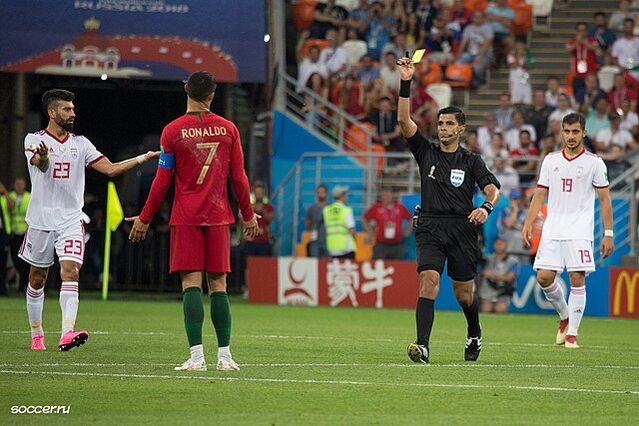Cognitive Dissonance
The Psychological Lessons of the EURO 2020 Games
The players are not as delusional as they may seem.
Posted July 1, 2021 Reviewed by Lybi Ma
There is a lot we can learn from watching major sports events, like the Olympics or the World Cup— about grit, about emotional actions, about the right kind of mindset, and so on. But 2021's second most popular sports event, the EURO 2020, offers a more specific insight into the players' psyche.
The EUROs are the European version of the football soccer World Cup. And given that in the last 27 years all except one winner of the World Cup were European teams, the EUROs are a big deal. In Europe, it is as big as the World Cup itself. Fifteen years ago in the US, I remember that you had to go to somewhat shady bars to catch a EURO game, now its viewership is very close to that of the Superbowl.
One major novelty at the EURO 2020 is the use of VAR or Video Assistant Referee. In the old days, one referee called all the shots about whether a player was fouled, on penalty decisions, or on who deserved a yellow or a red card. The referee had to run around all over the field and while he was assisted by two linesmen, it was inevitable that there were a fair amount of wrong decisions. This has completely changed recently and the EURO 2020 is the first major tournament where a new system is in place. Now there is a large group of certified referees in a room watching every suspicious action recorded from literally dozens of different angles. If there are any doubts about whether there was a foul, the camera must have recorded conclusive evidence that should decide the matter. And these recordings are immediately shown both to the TV audiences and to the audiences in the stadium on a giant screen.
The players know this. Nonetheless, they really don't behave accordingly. One often-discussed feature of the Beautiful Game is that sometimes players seem to be in agony on the ground after seemingly piffling incidents. It is tempting to put this down as just bad acting in the service of trying to fool the referee. Conversely, those players who have fouled their opponents almost always immediately plead innocence.

This may have worked in the old days with gullible referees, but it is clearly not going to work with dozens of experts analysing every move from every possible angle. If you committed a foul, at least one of the camera angles will show this crystal clearly. And then the whole world will see it. You will look like a fool. Similarly, if you go down without being fouled and then roll around the ground seemingly in great agony, there will be recordings that show that there was no contact and the whole exercise is just an act. Pretty embarrassing.
But the players still do it, even now at the EURO 2020. Why?
There are three possible explanations for this irrational behaviour:
First, it may just be the force of habit. If you've been engaging in these kinds of shenanigans for years and decades, it is not so easy to just stop. This is undoubtedly part of the explanation.
Second, it may still be about saving face. There is always a chance that somehow none of the 26 cameras have a decisive recording of what has happened, maybe some other players blocked the ideal view. Or maybe the referee moves things ahead quickly, so it doesn't come to replay. It's always possible.
But from a psychological point of view, the most interesting and most likely explanation has nothing to do with how things look to others. It has to do with how things look to us. It's not that we don't want the referee or the spectators to think that we fouled. We don't want ourselves to think we fouled. This is a version of cognitive dissonance. Fouling—especially petty fouling, not uncommon in these games—is not something that is consistent with the self-image of most players. They don't want to think of themselves as people who commit often nasty, often unnecessary fouls. They don't want to believe that they actually did that.
It is not that these stars who seem to be playacting are stupid or naive or way too optimistic about the limits of technology. They just want to think of themselves as fair, nice, good people. Like all of us.


